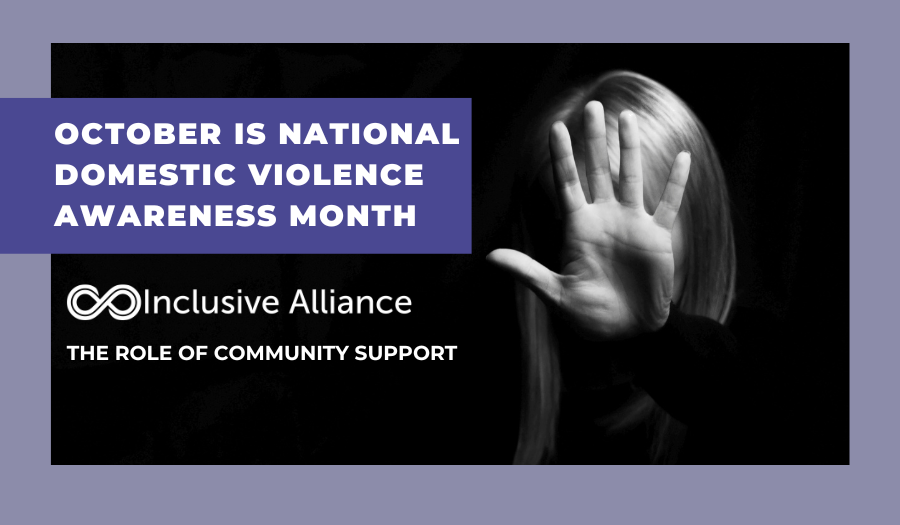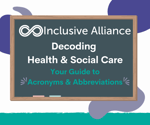By Nicole Hall

Here at Inclusive Alliance, we aim to continually support our network of community-based organizations, and the broader community they serve. One of the many ways we do that is through information sharing and advocating for and on behalf of the community voices, big and small, that we are connected to. I have had the privilege of working in several community facing positions, for some of our network organizations, that has included working directly with victims of domestic violence. These experiences have driven my personal and professional desire to continue my work in the community, and support (directly or indirectly) the individuals in our local community who are most vulnerable and in need of support to lead healthy and happy lives.
Domestic Violence can come in many forms and involves a pattern of power and control perpetuated by one intimate partner against another. This can include physical violence or intimidation, sexual violence, threats, economic or financial abuse, and emotional or psychological abuse. The frequency and severity of this abuse can vary dramatically, and can include only one type, or multiple types of abuse. Not all cases of domestic violence will involve “obvious” physical abuse.
Nationally, more than 10 million adults experience domestic violence annually. In New York, at least 31.7% of women, and 29% of men experience some form of domestic violence. Unfortunately, many factors in our community contribute to under-reporting of domestic violence, so actual numbers may be significantly higher. 1 in 3 women, and 1 in 4 men in the United States have experienced has experienced some form of physical violence by an intimate partner, and in 2018 domestic violence accounted for 20% of all violent crime. Unfortunately, the COVID-19 pandemic has also contributed to an increase in domestic violence across the country.
Interpersonal safety, and other social drivers of health, have a tremendous impact on our overall health. This is why states like New York, and North Carolina, have invested significant funding to address health related social care needs. The Healthy Opportunities Pilot in North Carolina is intended to showcase how long-term investment in whole-person care can improve not only the health of residents of North Carolina, but also the long-term cost of care for those served under the pilot. Their pilot addresses food insecurity, housing instability, transportation challenges, and interpersonal violence and toxic stress. Many states, including New York, are watching the development and implementation of this pilot in anticipation of the lessons learned around both challenges and successes.
As Inclusive Alliance continues our work to support our network, we know that supporting the victims of interpersonal and domestic violence is crucial to not only their health, but the overall health of our community. We will continue to advocate on behalf of our community and support growing service capacity and do our part to work towards a community free from domestic violence.
If you or someone you know is in need of support or seeking additional resources around domestic
violence, please contact the National Domestic Violence Hotline by calling 1-800-799-SAFE (7233), or by texting “START” to 88788. Locally you can also visit https://www.211cny.com/ or call 211 for additional resource information and referral to local support options.
RESOURCES
National Coalition Against Domestic Violence Facts
Domestic Violence in New York State


%20(1260%20%C3%97%20400%20px)%20(Facebook%20Post%20(Landscape))%20(900%20x%20525%20px).png?width=150&height=150&name=5%20Tips%20How%20to%20be%20a%20Successfully%20affiliator%20(1260%20%C3%97%20630%20px)%20(1260%20%C3%97%20400%20px)%20(Facebook%20Post%20(Landscape))%20(900%20x%20525%20px).png)